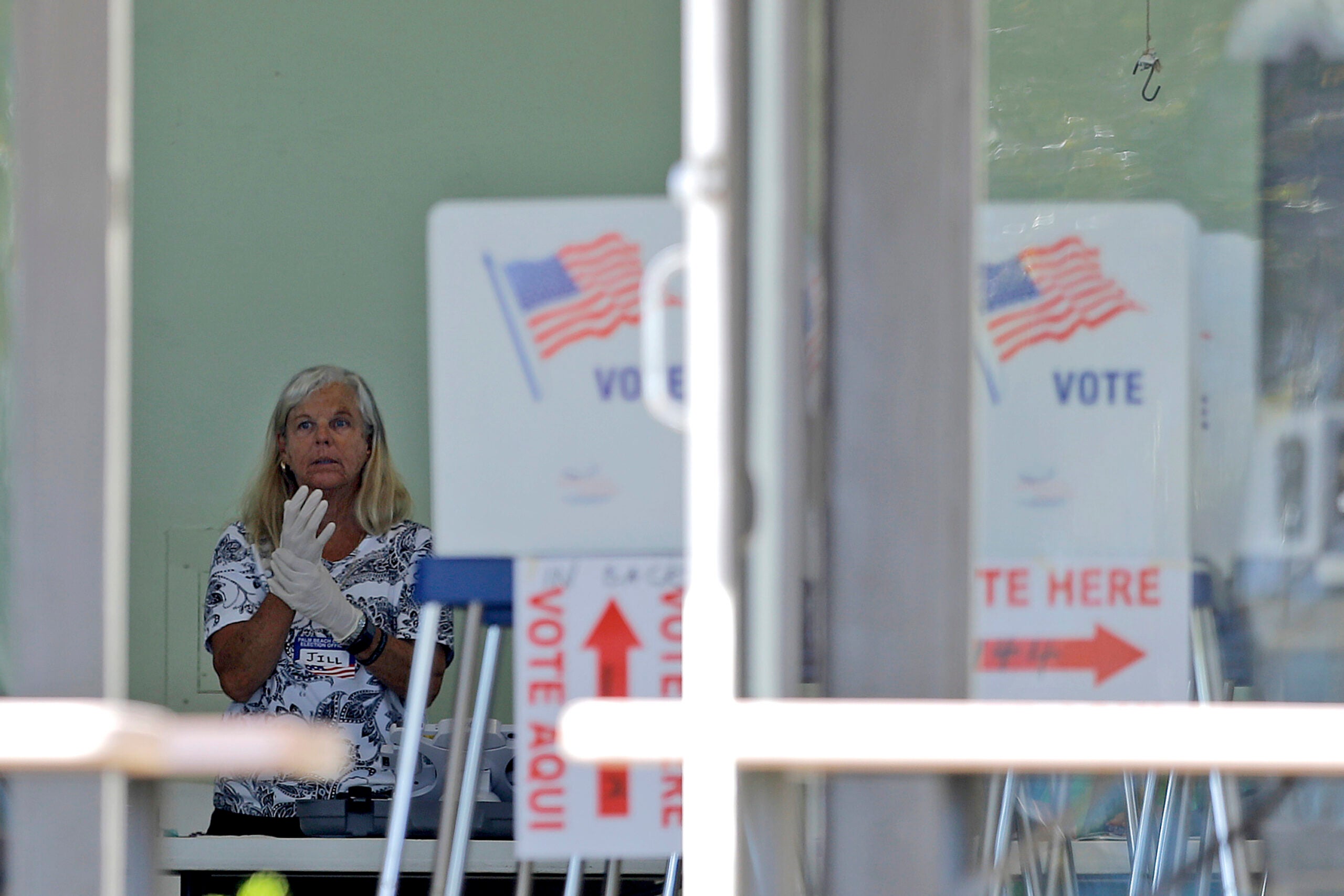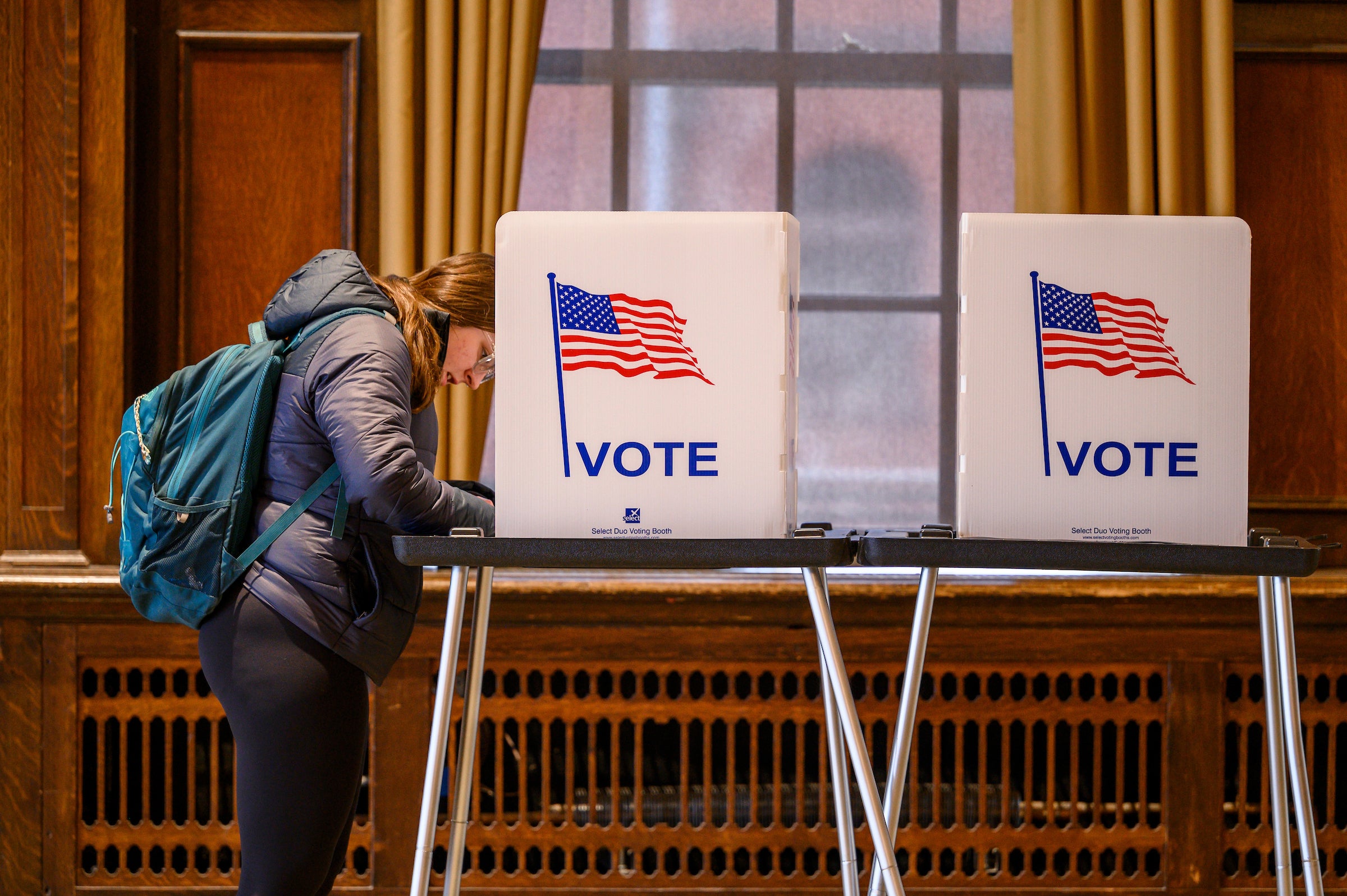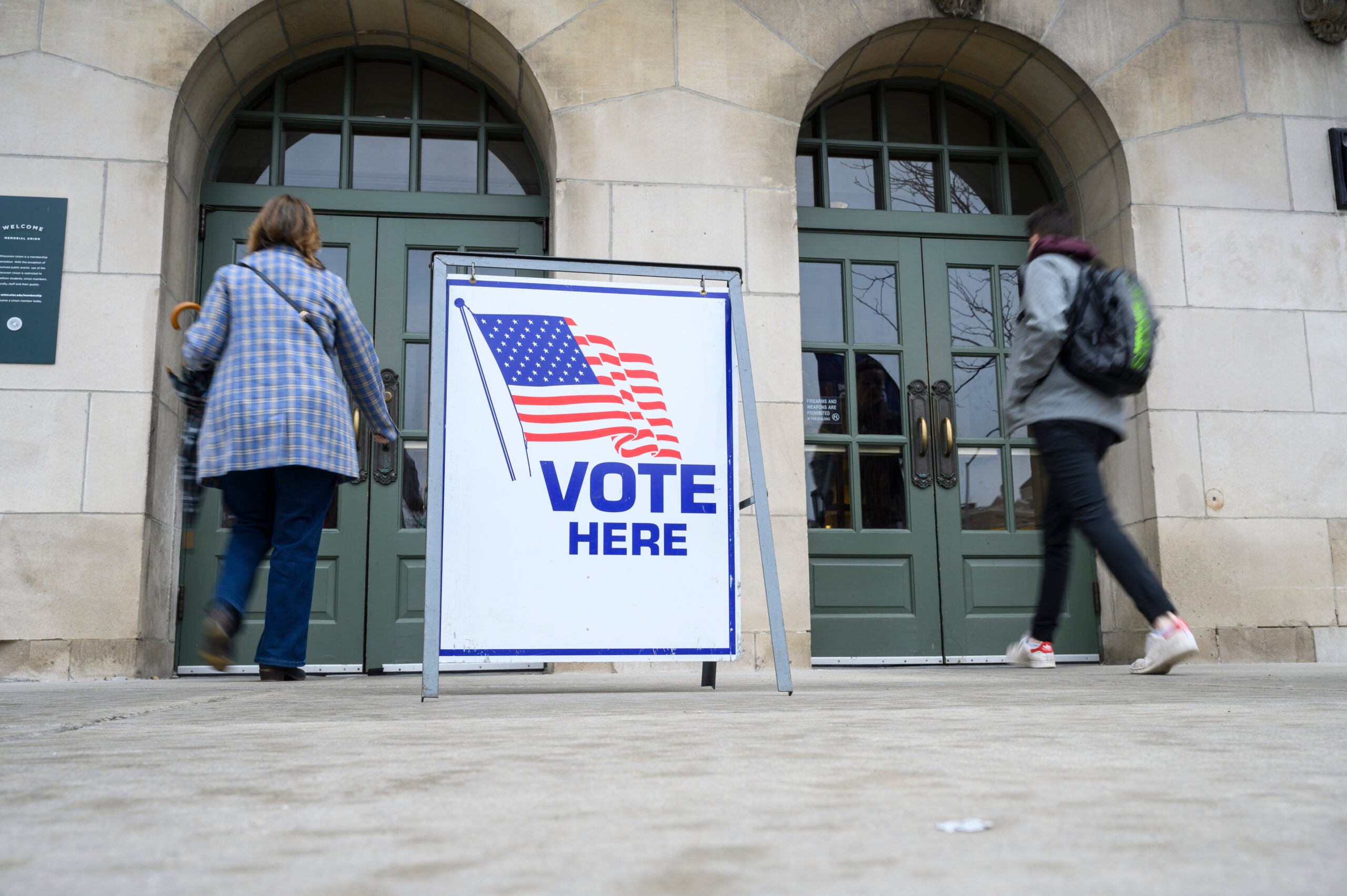A federal judge has denied a request to postpone Wisconsin’s Tuesday election because of concerns over COVID-19, saying while the event will put voters and poll workers at risk, it’s not his place to act.
U.S. District Court Judge William Conley issued his ruling Thursday, a day after hearing arguments and five days before voters are scheduled to go to the polls. Conley did issue orders that could make it easier to vote absentee and give clerks more time to count absentee ballots.
Three groups sued to either try to delay or alter the election, arguing it flies in the face of public health advice to stay home and avoid large crowds.
Stay informed on the latest news
Sign up for WPR’s email newsletter.
Conley was sharply critical of Democratic Gov. Tony Evers and Republican lawmakers for moving ahead with the election, writing the risk of the event had become increasingly clear.
“Contrary to the view of at least a dozen other states, as well as the consensus of medical experts across the country as to the gathering of large groups of people, the State of Wisconsin appears determined to proceed with an in-person election,” Conley wrote.
But Conley said based on his reading of U.S. Supreme Court rulings, it was not within his power to postpone the election.
“Without doubt, the April 7 election day will create unprecedented burdens not just for aspiring voters, but also for poll workers, clerks, and indeed the state,” Conley wrote. “As much as the court would prefer that the Wisconsin Legislature and Governor consider the public health ahead of any political considerations, that does not appear in the cards. Nor is it appropriate for a federal district court to act as the state’s chief health official by taking that step for them.”
Conley’s order extends two deadlines that could make it easier to cast and count absentee ballots.
One would require clerks to count absentee ballots as long as they’re received by 4 p.m. Monday, April 13. Under current law, they’re required to be received by 8 p.m. Tuesday, April 7.
Another order extended a deadline that was set for 5 p.m. Thursday to request an absentee ballot. Under Conley’s order, the deadline would be extended until 5 p.m. Friday.
Conley’s also ruled voters can avoid the requirement that someone witness their signature when they vote absentee as long as they state they were unable to obtain such a signature.
“No magic words are required by a voter to successfully make this affirmation, and it will be left up to the individual discretion of clerks as to whether to accept a voter’s excuse for not completing the witness certification requirement based on the written affirmation by the individual voter,” Conley wrote.
The case before Conley represented the combined effort of a broad coalition of groups, including the state and national Democratic parties, the League of Women Voters of Wisconsin and a number of groups representing minority communities.
The Democratic Party of Wisconsin issued a statement Thursday celebrating the decision.
“Today’s ruling is a victory for voters, for public health, and for democracy itself,” said state Democratic Party Chair Ben Wikler. “Every voter must count, even during crises, and this ruling gives voters critical time to vote safely by mail.”
But lawyers for Republicans appealed the case almost immediately, asking a federal court in Chicago to step in and halt Conley’s ruling. The Republican National Committee and the Republican Party of Wisconsin filed a joint appeal. An attorney hired by Republicans to represent the Wisconsin state Legislature filed a separate appeal.
“The court’s decision to change the date by which absentee ballots can be received without any limitation on the postmarked date effectively changes the date of the election,” said Republican Party of Wisconsin Chair Andrew Hitt. “Such a substantial decision normally left to our elected officials requires the review of the Seventh Circuit Court of Appeals. We hope the appeals court defers to the Wisconsin legislative and executive branches and stays the district court’s decision.”
Concerns About Timing, Reporting Of Election Results
Shortly after Conley issued his decision, the Wisconsin Elections Commission scheduled an 8 p.m. meeting Thursday to discuss the case. Most of that meeting — nearly three hours — was spent in closed session.
When commissioners reemerged to a public conference call, Wisconsin Elections Commission Administrator Meagan Wolfe told them her read of Conley’s order was it would apply not only to mail-in absentee ballots, but to any absentee ballots as long as they’re delivered by 4 p.m. Monday, April 13.
“Either through the mail, hand-delivery or other methods like drop-boxes,” Wolfe said.
Wolfe added that Elections Commission staff would need to come up with guidance for when unofficial election results could be made public. Normally, they’re released as soon as possible on election night.
The Commission had sent Conley a letter Tuesday stating they would be fine with letting clerks count absentee ballots until Monday, April 13 so long as the judge preserved a requirement that ballots be postmarked by Election Day.
When Conley got rid of the postmark requirement, Elections Commission Chair Dean Knudson, a Republican appointee, said that created problems.
“Unless this is appealed or somehow prevented from happening, we’re going to have a real mess,” Knudson said. “The way he envisions it, the election really goes on and does not end until the 13th.”
But Democratic commissioner Mark Thomsen said Conley’s order was made necessary by the unprecedented circumstances brought about by COVID-19.
“But for the judge’s ruling allowing us to count absentee ballots,” Thomsen said, “We wouldn’t even be able to have anything that would be called a legitimate election on Tuesday. With this court order we have a chance to at least count the ballots.”
Also Thursday, Wolfe highlighted a technical issue with complying with another part of Conley’s order to let voters request absentee ballots until Friday. Because of computer programming complications, voters who want to use the option will need to request absentee ballots for the remainder of the calendar year instead of just for the April election.
Editor’s note: This story has been updated to include information from the Wisconsin Elections Commission meeting Thursday.
Wisconsin Public Radio, © Copyright 2025, Board of Regents of the University of Wisconsin System and Wisconsin Educational Communications Board.




